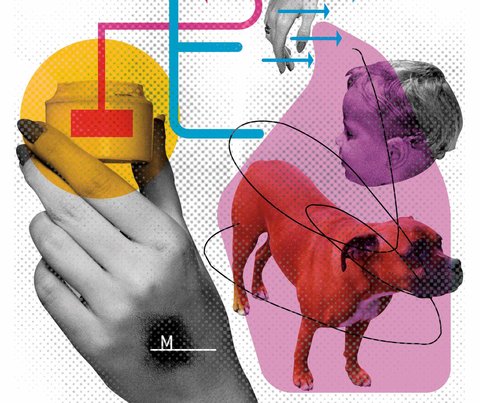As more and more menopausal women use topical hormone creams for their health, the downside is they are dangerous for animal companions and children. The lotions, creams, sprays and gels that are applied to arms and legs are places on the body that dogs and cats tend to lick and children are exposed to when held or hugged.
Chewing or licking discarded hormone patches may also be a way for animals to get exposed to the hormones. Over the years unusual symptoms in dogs and cats have been reported online; but when veterinarians began to see a number of dogs brought into the clinic with swollen vulvas they were confused as to the cause. Meanwhile, the phenomenon was showing up in other clinics, and after sifting through a number of possibilities, the veterinarians realised it must be hormone replacement exposure.
One hormone spray used to treat hot flashes, has prompted the Food and Drug Administration (FDA) to issue a warning that exposure to children could cause premature puberty. The spray’s estrogen hormone estradiol is sprayed on the forearm, much the same way other estrogen, testosterone and progesterone creams are rubbed onto the arms and legs. Who would have ever considered that a warm hug from grandma could expose children and animal companions to danger? The FDA and veterinarian research reports that coming into contact with hormone replacements – and they do not say how often or for how long – can lead to:
Premature puberty, nipple swelling, and breast development in girls
Breast enlargement in boys.
Mammary or nipple enlargement and vulva-swelling in animal companions.
Undersized penis in male dogs and cats.
Fur loss in animal companions.
What You Can Do
When working with animal companions or children, cover the hormone replacement treated area.
Rub the hormone cream or gel between the legs or on the belly away from contact with children or animal companions.
Do not allow animal companions to lick areas on the body that have been treated with hormone creams or sprays.
After contact, wash a child’s skin with soap and water as soon as possible.
When removed from contact with hormone replacement products, dogs and cats can recover, but the long-term effects are not yet known. What is known is that excess exposure to the hormone estrogen can lead to aplastic anemia, a blood disease common to dogs and cats. It might also put them at risk of developing mammary tumours or breast cancer. Your safest bet is not to expose your children or animal companions to hormone products, which, unfortunately, makes most menopausal women suspect from relatives to animal groomers. Better to question and be safe, than say nothing and be sorry.
Adapted from an article by Delia Q.




